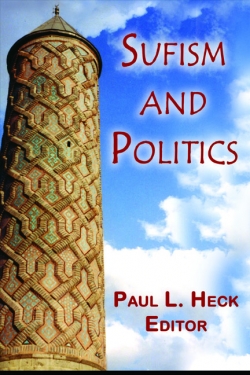 Sufism is often overlooked when it comes to scholarly consideration of the politics of the Muslim world. This is partly due to the difficulty of defining Sufism, which is both spiritual outlook and social institution. Both aspects, however, have been important factors in the variegated involvement of Sufism in the politics of Muslim society, past and present alike. The articles comprising this volume aim to consolidate thinking about the political dimension of Sufism across culture and history and to offer new horizons for scholarly reflection on the sociopolitical role played by Sufism in both pre-modern and modern Muslim society. Sufism has been an active player in defining the societal nature of Islam, no less than its theological nature, and this volume underscores the way in which Sufism has played that role while adapting itself to changing political conditions.
Sufism is often overlooked when it comes to scholarly consideration of the politics of the Muslim world. This is partly due to the difficulty of defining Sufism, which is both spiritual outlook and social institution. Both aspects, however, have been important factors in the variegated involvement of Sufism in the politics of Muslim society, past and present alike. The articles comprising this volume aim to consolidate thinking about the political dimension of Sufism across culture and history and to offer new horizons for scholarly reflection on the sociopolitical role played by Sufism in both pre-modern and modern Muslim society. Sufism has been an active player in defining the societal nature of Islam, no less than its theological nature, and this volume underscores the way in which Sufism has played that role while adapting itself to changing political conditions.
Issues covered in this volume include charismatic authority and institutional interests, the moral good and the state (both patrimonial and national); patronage, power, and the competitive politics of sainthood; theological assessments of the value of the world, justice, and conceptions of civil society as seen through the eyes of Sufism. This work casts further light on an important and influential side of the ongoing debate within Islam over the purposes of politics alongside its realities.
